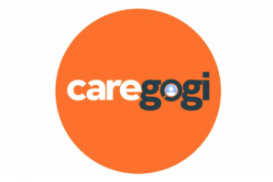How to Interview Safely
Safety Applying to Jobs
Caregogi has a manual vetting process for all caregivers and clients. This is to ensure the safety of all users on our site. Additionally, clients need to pay in order to access our caregiver portal. Because of this we feel confident that the majority of people on the site are legitimately seeking senior care. However, there are always people online trying to perform new and different scams. If you feel that you are being solicited illegitimately please disengage from the conversation and report it to us so that we can remove the troublesome person from the site.
Interviewing Safety
To ensure your safety, we always recommend that you conduct your initial interview with your client in a public setting. It is always best to use caution when meeting someone in person for the first time. Make sure that you request the client’s I.D. when meeting to ensure that they are who they say they are. Use your gut instinct. If something feels off when you are interviewing, do not proceed with employment. Remember, the interview is not just for the client to get to know you. You should be interviewing the client as well. Learn as much as you can about the home environment. This way you will be prepared when you schedule a home tour with the client.
Always make sure that someone knows where you are when you are interviewing. Let a friend or family member know where you are going and how long you expect the interview to last. Tell them to call you an hour after your interview begins. This way, if you feel uncomfortable you will have an excuse to leave. Remember to always trust your instincts. If something feels wrong do not continue.
Safety in the Home
Often the interview process will give you all the information you need to know about a potential client. Though occasionally people can change once you get to know them. If you are in a situation where you enter the home environment and feel threatened, Caregogi recommends that you do not continue employment. If you feel that you are abandoning a client try to refer them to a senior home care agency. Often they have protocols for difficult situations. Additionally, families often feel they can intimidate private duty caregivers because they are just one person.
There are several signs to look out for that a home environment might be toxic:
- Drug or alcohol abuse
- Impossible to please clients
- A history of many caregivers or agencies who did not work out
- Late or inconsistent payments
- You feel physically threatened
- They threaten to take unprecedented legal action against you
- You leave feel demeaned or emotionally abused
Safety When Severing Ties
If you feel unsafe in the home environment, or if you witness something that makes you uncomfortable do not feel guilty about having to walk away. Always make sure that you do your best to ensure the senior who needs care will be taken care of if you need to leave. If possible, recommend the client to an agency or a friend who you feel might be better equipped to handle their care needs. If the situation is such that you feel you need to call protective services on behalf of the senior you care for, do that once you have safely exited the situation so that you do not put yourself in danger.
The best way to sever ties with a client is to express your concerns with them, if you feel safe doing so, and explain you do not feel that you are the right caregiver for the job. If you do not feel safe enough in the environment to cleanly cut ties with your client it is always best to remove fault from them so that they do not feel threatened. A good way to do this is to say that you are having a life change and you can no longer provide care. Do not give details to your client regarding what your life change is. Give them some time to make other arrangements if at all possible. It is recommended that you give a client at least two weeks notice before leaving a case.
Stay safe out there!
We hope that you all stay diligent and safe while providing care for seniors. As always, if you ever feel immediately threatened call 9-1-1. If there is anything we can do to help make you feel more comfortable and safe while using our site, contact us.

